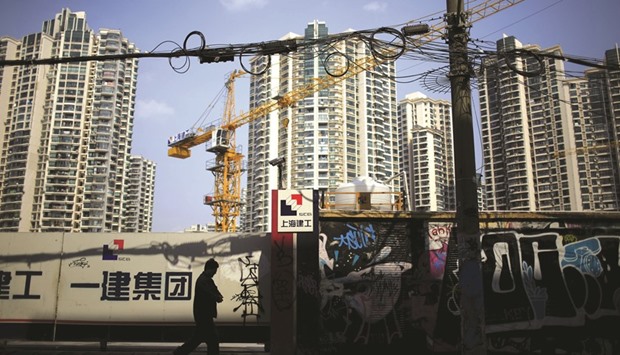China’s central bank chief oozed calm in an annual press briefing in Beijing on Saturday, supported by weeks of composure in markets as investor anxiety over the nation’s currency policy eased.
How long the lull lasts will depend on how policy makers manage a balancing act made tougher by a weaker-than-anticipated start to the year for the world’s No 2 economy. After People’s Bank of China governor Zhou Xiaochuan spoke at the country’s annual gathering of the legislature, data showed an “alarming” failure of growth to respond to recent stimulus, Bloomberg Intelligence analysts Tom Orlik and Fielding Chen concluded.
The weakening momentum seen in industrial output, retail sales and property sector highlight scepticism about the Communist Party’s goal of achieving average growth of at least 6.5% in its five-year plan to 2020. Gavekal Dragonomics calls the target “incredible.” JPMorgan Chase & Co says a sustainable pace is “much lower” than what officials are targeting for this year.The danger is that to meet the leadership’s objective, which for 2016 is an expansion of 6.5% to 7%, Zhou will need to loosen monetary policy faster and further. That could intensify depreciation pressures on the yuan, which has benefited in recent weeks from a drop in the dollar.
Looser monetary policy, along with the expanded fiscal deficit pledged by Premier Li Keqiang’s cabinet, would quicken a buildup of debt that already amounts to almost 2.5 times gross domestic product. “This is a risky target for the next five years as it means the continuation of super-loose monetary and fiscal policy,” said Chen Zhiwu, a finance professor at Yale University in New Haven, Connecticut, and a former adviser to China’s State Council. “If market participants have been worried about China since June-July 2015, they have not seen the real thing yet.” The data released on Saturday showed industrial production rose 5.4% in the first two months of the year from a year before, the weakest reading since the 2009 global recession.
That’s even before policy makers have much to show for a campaign to shut down excess capacity in the unproductive state- owned sector. Retail sales also slowed, while the value of homes soared versus a year ago with property sales in some mid-sized cities doubling. Fixed-asset investment exceeded economists’ estimates.
Speaking hours before the data releases, Zhou, 68, warned banks about increased credit risk and rising real estate prices in the biggest cities. He sought to ease concerns over volatility in the stock and currency markets while saying meeting the five-year growth target would not require a big stretch.

A man walks in front of a construction site in Shanghai. The weakening momentum seen in China’s industrial output, retail sales and property sector highlight scepticism about the Communist Party’s goal of achieving average growth of 6.5%.
